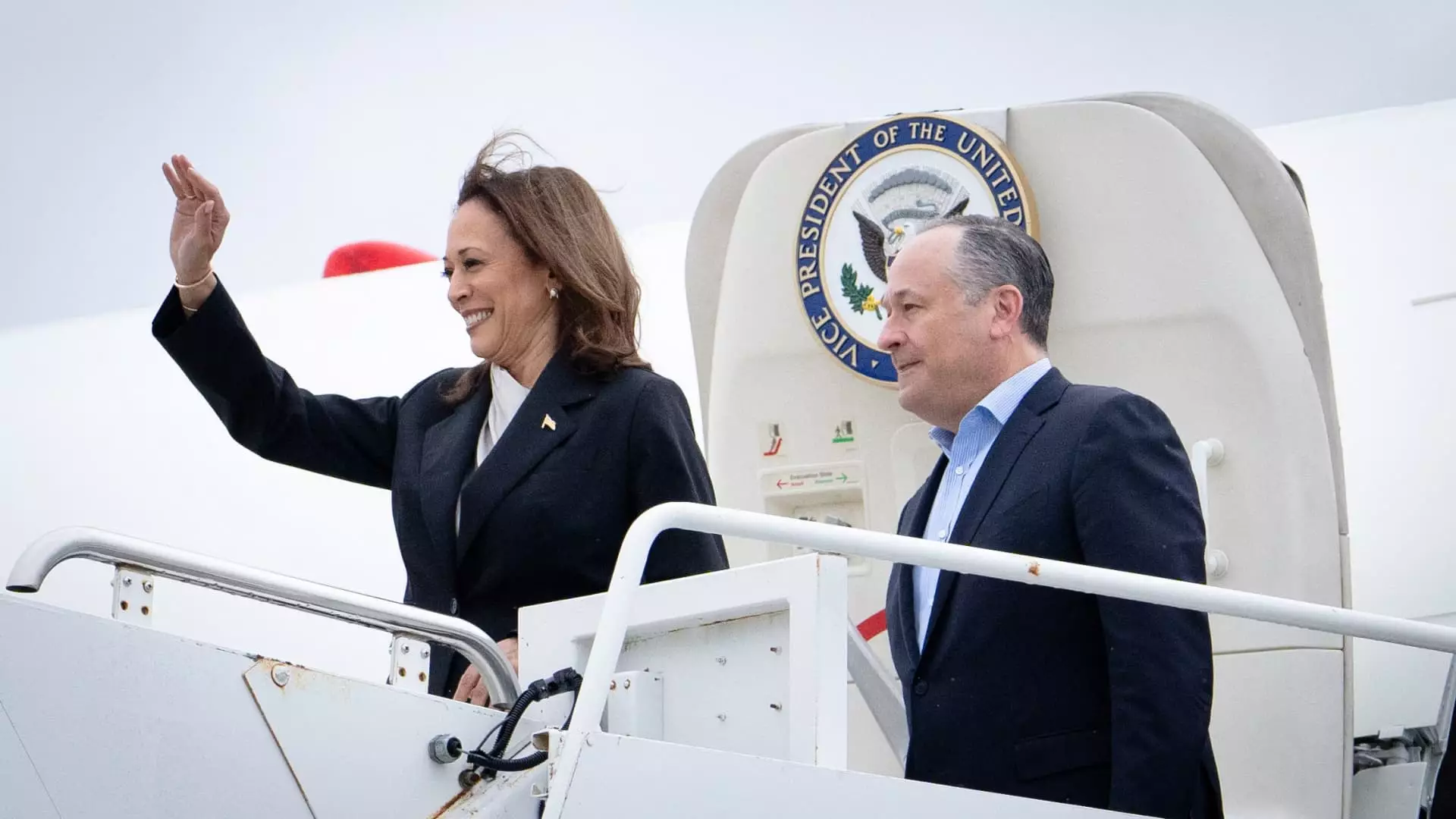Vice President Kamala Harris and Second Gentleman Douglas Emhoff’s personal financial records have come under scrutiny as Harris runs for the highest office in the United States. Analysis of their tax filings reveals that they have maintained a fairly basic financial strategy during Harris’ tenure as vice president. While this approach may have simplified their financial dealings, experts suggest that it has potentially led to unclaimed tax savings and missed financial opportunities for the couple.
Financial experts like Craig Hausz and Carolyn McClanahan note that Harris could have been more aggressive in reducing her tax liability. Hausz specifically mentions that Harris could have taken more deductions against her book income, which was reported to be $7,272 in 2023. Additionally, Harris’ increase in bank account interest from $6,054 in 2022 to $50,603 in 2023 may indicate overly conservative cash allocations, missing out on potential growth in the stock market.
While Harris’ financial returns are comparable to those of millions of Americans, experts suggest that she could have pursued more tax-efficient strategies. McClanahan highlights the importance of maximizing contributions to tax-deferred retirement accounts like a Thrift Savings Plan or a SEP to enhance tax savings. Despite Harris’ existing retirement security through pensions from her various roles, McClanahan emphasizes the value of additional retirement savings for the vice president.
One argument in favor of Harris’ cash-heavy approach is the financial flexibility it provides, especially as Emhoff took a significant pay cut to assume the role of Second Gentleman. McClanahan suggests that having ample cash on hand can help politicians like Harris meet their expenses and mitigate financial risks. While they may not be maximizing returns on their cash, the liquidity it offers is essential in their current financial situation.
Looking ahead, experts recommend that Harris explore further retirement savings options to enhance her financial security. Contributions to retirement plans, coupled with her existing pension benefits, can safeguard her financial well-being in the long term. McClanahan stresses the importance of optimizing tax-deferred accounts and supplementing her retirement savings for a more robust financial future.
Vice President Kamala Harris’ financial disclosures reveal a conservative approach to managing her finances, which may have led to missed tax savings and investment opportunities. While her financial situation is significantly more secure than that of most Americans, experts suggest that Harris could further leverage retirement savings to enhance her financial flexibility and security. By reassessing her financial strategy and exploring tax-efficient options, Harris can strengthen her financial foundation for the future.

